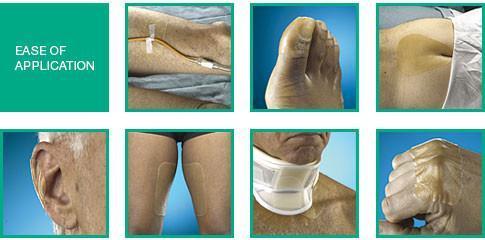Most people have a first-aid kit in their homes that is fairly well-stocked for treating minor injuries and ailments. From ointments and salves to bandages and dressings, there are plenty of readily-available products on the market that you can keep to safely treat minor wounds yourself. However, some wounds far exceed the category of "cuts and scrapes," and should be treated only by a healthcare professional. How can you tell the difference?
Many cuts and scrapes can safely be treated at home as long as you've got the right ointments and bandages. A small cut or scrape can be treated by cleaning it with hydrogen peroxide, applying an antibacterial like Neosporin, and using the appropriate bandage. For smaller cuts, a regular adhesive bandage can be used; for ones that are a bit deeper, you may want to use a butterfly bandage or a hydrocolloid dressing like Duoderm. It's important to clean the wound, apply more Neosporin, and change the bandage at least daily.
However, if a wound is too deep, bleeding too heavily, or has a high risk of infection, it's important to have it treated by a healthcare professional. Assess the wound and how deep it is – is there visible subcutaneous tissue, which is yellowish and fatty in appearance? If this is the case, you could likely treat it with stiches, but if the bleeding is controllable, they may not be necessary. Is the wound too wide to be pulled closed? Gaping wounds that are too difficult to close should always be treated by a doctor as they may not heal properly without stitches; they will likely cause scarring and are prone to infection otherwise. Then, assess where on the body the wound is located. If it's on skin that frequently stretches, like around joints, on the face, or on fingers, it will probably need stitches to heal properly because a bandage will not sufficiently hold the skin in place.
Even if a wound doesn't meet the above criteria for needing stitches or medical attention, consider when your last tetanus shot was. If you feel that you've cut yourself on an unsanitary object and haven't had your tetanus vaccination recently, it might be a good idea to visit a doctor.
Open wounds caused by diabetes or animal bites are always best treated by a professional.
Remember to always keep a variety of different bandages, mild painkillers, and ointments in a first-aid box at home to avoid unnecessary trips to the doctor and to effectively and quickly treat injuries. Browse our collection for more wound care products.
Sources
Common Questions About Wound Care


